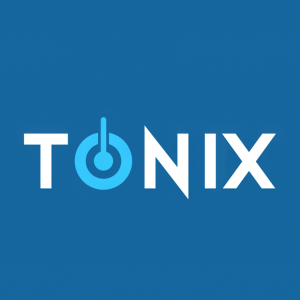Tonix Pharmaceuticals Announces In-licensing Phase 2/3-Ready Monoclonal Antibody Designed for Seasonal Prevention of Lyme Disease (TNX-4800)
Rhea-AI Summary
Tonix Pharmaceuticals (Nasdaq: TNXP) has announced the in-licensing of worldwide rights to TNX-4800, a long-acting human monoclonal antibody designed for seasonal prevention of Lyme disease. The antibody targets the outer surface protein A (OspA) of Borrelia burgdorferi, the bacteria causing Lyme disease.
The treatment, developed by UMass Chan Medical School researchers, requires just one subcutaneous dose in Spring to provide protection through Fall. TNX-4800 has shown positive Phase 1 results with safety, tolerability, and linear pharmacokinetic relationships. The potential market includes approximately 70 million people living in Lyme disease endemic areas in the U.S.
TNX-4800 works by blocking Borrelia maturation in infected tick midguts, offering immediate immunity without requiring the recipient's immune system to generate antibodies. The company plans to advance the treatment through additional clinical trials toward a Biologics Licensing Application (BLA).
Positive
- Positive Phase 1 study results demonstrating safety and tolerability
- Single-dose administration provides protection for entire tick season
- Large potential market of 70 million people in endemic areas
- Novel mechanism of action avoiding autoimmunity risks
- Immediate immunity without requiring multiple doses
Negative
- Currently in early clinical development phase
- Will require extensive clinical trials before potential approval
- No FDA-approved vaccines or prophylactics exist as benchmarks
News Market Reaction
On the day this news was published, TNXP gained 2.18%, reflecting a moderate positive market reaction. Argus tracked a peak move of +2.1% during that session. Our momentum scanner triggered 10 alerts that day, indicating notable trading interest and price volatility. This price movement added approximately $5M to the company's valuation, bringing the market cap to $255M at that time.
Data tracked by StockTitan Argus on the day of publication.
Positive Phase 1 study showed safety, tolerability and a linear pharmacokinetic: pharmacodynamic: efficacy relationship (1: 1: 1)
Planning adaptive Phase 2/3 study
Approximately 70 million people that are eligible for treatment live in areas of the U.S. in which Lyme Disease is endemic
CHATHAM, N.J., Sept. 17, 2025 (GLOBE NEWSWIRE) -- Tonix Pharmaceuticals Holding Corp. (Nasdaq: TNXP) (“Tonix” or the “Company”), a fully-integrated biopharmaceutical company with marketed products and a pipeline of development candidates, today announced the in-licensing of worldwide rights to TNX-4800 (formerly known as mAb 2217LS)1, which is a long-acting human monoclonal antibody that targets the outer surface protein A (OspA) of Borrelia burgdorferi, the causative agent of Lyme disease in humans. TNX-4800 is being developed for annual seasonal use, as one subcutaneous dose administered in the Spring to protect against Lyme disease through Fall, or the entire tick season in the U.S. TNX-4800 was developed by researchers at UMass Chan Medical School, which is licensing the technology to Tonix. There are currently no FDA-approved vaccines or prophylactics to protect against Lyme Disease.
“Lyme disease remains the most common vector-borne infection in the United States and its incidence is climbing each year,”2 said Seth Lederman, M.D., Chief Executive Officer of Tonix Pharmaceuticals. “Licensing TNX-4800 expands our infectious disease pipeline with a potentially differentiated, single-dose approach that can be given each Spring to provide protection within two days and protect through Fall, which is the entire tick season in the U.S. We believe TNX-4800’s long-acting monoclonal antibody prophylaxis could play an important role for preventing Lyme for millions of people who live, work, and vacation in regions endemic for Lyme disease. TNX-4800’s novel mechanism of blocking the maturation of Borrelia in the midgut of infected ticks is consistent with Tonix’s focus on innovation. We look forward to advancing the TNX-4800 program.”
“Preventing Lyme disease is an urgent public health priority, and more than thirty years of clinical experience confirm that monoclonal antibodies can be delivered safely and can be effective in preventing infections,” said Mark Klempner, M.D., Professor of Medicine at UMass Chan Medical School and leader of the research team that discovered and developed mAb 2217LS. “We are delighted to be collaborating with Tonix on the development of this program. TNX-4800 is a single dose and provides immediate immunity to the bacteria that causes Lyme disease, which is very different from Lyme disease vaccine programs currently in development.”
Terence R. Flotte, MD, Provost, Dean and Executive Deputy Vice Chancellor of UMass Chan Medical School, said, “We are proud to partner with Tonix Pharmaceuticals to advance the development of our novel monoclonal antibody as a prophylactic for Lyme disease, which is an urgent and growing public health challenge in the United States and around the world. This collaboration reflects UMass Chan’s enduring commitment to translational research that addresses unmet medical needs, and we are excited to work with Tonix to bring forward science-driven solutions that have the potential to prevent infection and protect vulnerable populations.”
TNX-4800 is a fully human monoclonal antibody with an engineered extended half-life that targets the outer-surface protein A (OspA) on Lyme-causing Borrelia bacteria. By binding OspA, TNX-4800 blocks the maturation of Borrelia burgdorferi in the mid-gut of infected deer ticks. The mAb 2217LS1 was derived from mAb 2217 by amino acid substitutions that crystallizable fragment (Fc) domain to prolong the serum half-life. A single administration in the Spring is designed to maintain protective antibody titers for the entire tick season, providing pre-exposure prophylaxis against Lyme disease without relying on the recipient’s immune system to generate antibodies. By delivering a well-characterized antibody directly, TNX-4800 has been shown to block transmission of the major Borrelia genospecies from ticks to animals. TNX-4800 sidesteps the multidose schedules required for OspA vaccines in development3 and FDA-approved vaccines that have been withdrawn from the market due to concerns about increased risk of autoimmunity. 4 Tonix intends to advance TNX-4800 through additional clinical trials with the goal of submitting a Biologics Licensing Application (BLA).
About Lyme Disease
In the United States, Lyme disease is caused by the bacterium Borrelia burgdorferi. It occurs most commonly in the Northeast, mid-Atlantic, and upper-Midwest regions. Lyme disease bacteria are transmitted through the bite of infected Ixodes ticks. Typical symptoms include fever, headache, fatigue, and a characteristic skin rash called erythema migrans. If left untreated, infection can spread to joints, the heart, and the nervous system. Laboratory testing is helpful if used correctly and performed with FDA-cleared tests. Although many cases of Lyme disease can be treated successfully with antibiotics, diagnosis and treatment are often delayed or missed, and even with treatment, up to
About Borrelia Burgdorferi
In infected deer ticks, Borrelia’s OspA binds to tick-gut receptor TROSPA and helps it adhere to the midgut lining. During a tick bite Borrelia downregulates OspA, upregulates OspC, and activates motility genes. Borrelia undergoes a metamorphic-like transformation becoming highly flagellated and mobile, which facilitates migration to the salivary glands and invasion of human host tissues. The mAb 2217LS blocks the metamorphic-like transformation of Borrelia in the tick’s midgut preventing transmission of the bacteria. Lyme-causing Borrelia exposed or infected individuals, rarely make antibodies against OspA which allows for people to be reinfected despite having immunity to OspC. Consequently we expect that protection against Borrelia would require annual prophylaxis.
About Monoclonal Antibody Prophylaxis
Two long-acting monoclonal antibody products6,7 have won FDA approval for prophylaxis against respiratory syncytial virus (RSV). AstraZeneca (in partnership with Sanofi) markets Beyfortus™ (nirsevimab) and Merck markets Enflonsia™ (clesrovimab).
Tonix Pharmaceuticals Holding Corp.*
Tonix Pharmaceuticals is a fully-integrated biotechnology company with marketed products and a pipeline of development candidates. Tonix recently received FDA approval for TonmyaTM, a first-in-class, non-opioid analgesic medicine for the treatment of fibromyalgia, a chronic pain condition that affects millions of adults. This marks the first approval for a new prescription medicine for fibromyalgia in more than 15 years. Tonix also markets two treatments for acute migraine in adults. Tonix’s development portfolio is focused on central nervous system (CNS) disorders, immunology, immuno-oncology and infectious diseases. TNX-102 SL is being developed to treat acute stress reaction and acute stress disorder under a Physician-Initiated IND at the University of North Carolina in the OASIS study funded by the U.S. Department of Defense (DoD). Tonix’s immunology development portfolio consists of biologics to address organ transplant rejection, autoimmunity and cancer, including TNX-1500, which is an Fc-modified humanized monoclonal antibody targeting CD40-ligand (CD40L or CD154) being developed for the prevention of allograft rejection and for the treatment of autoimmune diseases. Tonix’s infectious disease portfolio includes TNX-801, a vaccine in development for mpox and smallpox, as well as TNX-4200 for which Tonix has a contract with the U.S. DoD’s Defense Threat Reduction Agency (DTRA) for up to
* Tonix’s product development candidates are investigational new drugs or biologics; their efficacy and safety have not been established and have not been approved for any indication.
This press release and further information about Tonix can be found at www.tonixpharma.com.
UMass Chan Medical School
UMass Chan Medical School, one of five campuses of the University of Massachusetts system, comprises the T.H. Chan School of Medicine, the Morningside Graduate School of Biomedical Sciences, the Tan Chingfen Graduate School of Nursing, ForHealth Consulting at UMass Chan Medical School, MassBiologics, and a thriving Nobel-Prize-winning biomedical research enterprise. UMass Chan is advancing together to improve the health and wellness of our diverse communities throughout Massachusetts and across the world by leading and innovating in education, research, health care delivery and public service. It is ranked among the best medical schools in the nation for primary care education and biomedical research by U.S. News & World Report. Learn more at www.umassmed.edu.
1Schiller ZA, et al. J Clin Invest. 2021 131(11):e144843. doi: 10.1172/JCI144843. PMID: 33914704; PMCID: PMC8159683.
2Gomes-Solecki M, et. al.. Clin Infect Dis. 2020 70(8):1768-1773. doi: 10.1093/cid/ciz872. PMID: 31620776; PMCID: PMC7155782.
3Connaught’s (ImuLyme™) and SmithKline Beecham’s (LYMErix™) Lyme disease vaccines were withdrawn over concerns about an increased risk of autoimmune arthritis triggered by molecular mimicry, particularly in HLADRB1*0401 ("DR4+") individuals. Nigrovic LE, et al. Epidemiol Infect. 2007 135(1):1-8. doi: 10.1017/S0950268806007096. Epub 2006 Aug 8. PMID: 16893489; PMCID: PMC2870557.
4Pfizer and Valneva's VLA15 vaccine candidate has been specifically engineered and clinically evaluated to mitigate the autoimmune concerns that contributed to the withdrawal of earlier OspA-based vaccines. Comstedt P, et al. Vaccine. 2015 33(44):5982-8. doi: 10.1016/j.vaccine.2015.07.095. Epub 2015 Aug 13. PMID: 26277070.
5National Academies of Sciences, Engineering, and Medicine. 2025. Charting a Path Toward New Treatments for Lyme Infection-Associated Chronic Illnesses. Washington, DC: The National Academies Press. https://doi.org/10.17226/28578.
6Sanofi Press Release. “May 29, 2025. Press Release: Beyfortus public health advantage bolstered by first real-world comparison of infant vs maternal RSV immunization programs.“ https://bit.ly/40DeJGf
7June 9, 2025. Merck Press Release. “U.S. FDA Approves Merck’s ENFLONSIA™ (clesrovimab-cfor) for Prevention of Respiratory Syncytial Virus (RSV) Lower Respiratory Tract Disease in Infants Born During or Entering Their First RSV Season” https://bit.ly/4kkXDE8.
Forward Looking Statements
Certain statements in this press release are forward-looking within the meaning of the Private Securities Litigation Reform Act of 1995. These statements may be identified by the use of forward-looking words such as “anticipate,” “believe,” “forecast,” “estimate,” “expect,” and “intend,” among others. These forward-looking statements are based on Tonix's current expectations and actual results could differ materially. There are a number of factors that could cause actual events to differ materially from those indicated by such forward-looking statements. These factors include, but are not limited to, risks related to the failure to successfully launch and commercialize Tonmya and any of our approved products; risks related to the failure to obtain FDA clearances or approvals and noncompliance with FDA regulations; risks related to the timing and progress of clinical development of our product candidates; our need for additional financing; uncertainties of patent protection and litigation; uncertainties of government or third party payor reimbursement; limited research and development efforts and dependence upon third parties; and substantial competition. As with any pharmaceutical under development, there are significant risks in the development, regulatory approval and commercialization of new products. Tonix does not undertake an obligation to update or revise any forward-looking statement. Investors should read the risk factors set forth in the Annual Report on Form 10-K for the year ended December 31, 2024, as filed with the Securities and Exchange Commission (the “SEC”) on March 18, 2025, and periodic reports filed with the SEC on or after the date thereof. All of Tonix's forward-looking statements are expressly qualified by all such risk factors and other cautionary statements. The information set forth herein speaks only as of the date thereof.
Investor Contacts
Jessica Morris
Tonix Pharmaceuticals
investor.relations@tonixpharma.com
(862) 799-8599
Brian Korb
astr partners
(917) 653-5122
brian.korb@astrpartners.com
Media Contact
Ray Jordan
Putnam Insights
ray@putnaminsights.com
INDICATION
TONMYA is indicated for the treatment of fibromyalgia in adults.
CONTRAINDICATIONS
TONMYA is contraindicated:
In patients with hypersensitivity to cyclobenzaprine or any inactive ingredient in TONMYA. Hypersensitivity reactions may manifest as an anaphylactic reaction, urticaria, facial and/or tongue swelling, or pruritus. Discontinue TONMYA if a hypersensitivity reaction is suspected.
With concomitant use of monoamine oxidase (MAO) inhibitors or within 14 days after discontinuation of an MAO inhibitor. Hyperpyretic crisis seizures and deaths have occurred in patients who received cyclobenzaprine (or structurally similar tricyclic antidepressants) concomitantly with MAO inhibitors drugs.
During the acute recovery phase of myocardial infarction, and in patients with arrhythmias, heart block or conduction disturbances, or congestive heart failure.
In patients with hyperthyroidism.
WARNINGS AND PRECAUTIONS
Embryofetal toxicity: Based on animal data, TONMYA may cause neural tube defects when used two weeks prior to conception and during the first trimester of pregnancy. Advise females of reproductive potential of the potential risk and to use effective contraception during treatment and for two weeks after the final dose. Perform a pregnancy test prior to initiation of treatment with TONMYA to exclude use of TONMYA during the first trimester of pregnancy.
Serotonin syndrome: Concomitant use of TONMYA with selective serotonin reuptake inhibitors (SSRIs), serotonin norepinephrine reuptake inhibitors (SNRIs), tricyclic antidepressants, tramadol, bupropion, meperidine, verapamil, or MAO inhibitors increases the risk of serotonin syndrome, a potentially life-threatening condition. Serotonin syndrome symptoms may include mental status changes, autonomic instability, neuromuscular abnormalities, and/or gastrointestinal symptoms. Treatment with TONMYA and any concomitant serotonergic agent should be discontinued immediately if serotonin syndrome symptoms occur and supportive symptomatic treatment should be initiated. If concomitant treatment with TONMYA and other serotonergic drugs is clinically warranted, careful observation is advised, particularly during treatment initiation or dosage increases.
Tricyclic antidepressant-like adverse reactions: Cyclobenzaprine is structurally related to TCAs. TCAs have been reported to produce arrhythmias, sinus tachycardia, prolongation of the conduction time leading to myocardial infarction and stroke. If clinically significant central nervous system (CNS) symptoms develop, consider discontinuation of TONMYA. Caution should be used when TCAs are given to patients with a history of seizure disorder, because TCAs may lower the seizure threshold. Patients with a history of seizures should be monitored during TCA use to identify recurrence of seizures or an increase in the frequency of seizures.
Atropine-like effects: Use with caution in patients with a history of urinary retention, angle-closure glaucoma, increased intraocular pressure, and in patients taking anticholinergic drugs.
CNS depression and risk of operating a motor vehicle or hazardous machinery: TONMYA monotherapy may cause CNS depression. Concomitant use of TONMYA with alcohol, barbiturates, or other CNS depressants may increase the risk of CNS depression. Advise patients not to operate a motor vehicle or dangerous machinery until they are reasonably certain that TONMYA therapy will not adversely affect their ability to engage in such activities.
Oral mucosal adverse reactions: In clinical studies with TONMYA, oral mucosal adverse reactions occurred more frequently in patients treated with TONMYA compared to placebo. Advise patients to moisten the mouth with sips of water before administration of TONMYA to reduce the risk of oral sensory changes (hypoesthesia). Consider discontinuation of TONMYA if severe reactions occur.
ADVERSE REACTIONS
The most common adverse reactions (incidence ≥
DRUG INTERACTIONS
MAO inhibitors: Life-threatening interactions may occur.
Other serotonergic drugs: Serotonin syndrome has been reported.
CNS depressants: CNS depressant effects of alcohol, barbiturates, and other CNS depressants may be enhanced.
Tramadol: Seizure risk may be enhanced.
Guanethidine or other similar acting drugs: The antihypertensive action of these drugs may be blocked.
USE IN SPECIFIC POPULATIONS
Pregnancy: Based on animal data, TONMYA may cause fetal harm when administered to a pregnant woman. The limited amount of available observational data on oral cyclobenzaprine use in pregnancy is of insufficient quality to inform a TONMYA-associated risk of major birth defects, miscarriage, or adverse maternal or fetal outcomes. Advise pregnant women about the potential risk to the fetus with maternal exposure to TONMYA and to avoid use of TONMYA two weeks prior to conception and through the first trimester of pregnancy. Report pregnancies to the Tonix Medicines, Inc., adverse-event reporting line at 1-888-869-7633 (1-888-TNXPMED).
Lactation: A small number of published cases report the transfer of cyclobenzaprine into human milk in low amounts, but these data cannot be confirmed. There are no data on the effects of cyclobenzaprine on a breastfed infant, or the effects on milk production. The developmental and health benefits of breastfeeding should be considered along with the mother’s clinical need for TONMYA and any potential adverse effects on the breastfed child from TONMYA or from the underlying maternal condition.
Pediatric use: The safety and effectiveness of TONMYA have not been established.
Geriatric patients: Of the total number of TONMYA-treated patients in the clinical trials in adult patients with fibromyalgia, none were 65 years of age and older. Clinical trials of TONMYA did not include sufficient numbers of patients 65 years of age and older to determine whether they respond differently from younger adult patients.
Hepatic impairment: The recommended dosage of TONMYA in patients with mild hepatic impairment (HI) (Child Pugh A) is 2.8 mg once daily at bedtime, lower than the recommended dosage in patients with normal hepatic function. The use of TONMYA is not recommended in patients with moderate HI (Child Pugh B) or severe HI (Child Pugh C). Cyclobenzaprine exposure (AUC) was increased in patients with mild HI and moderate HI compared to subjects with normal hepatic function, which may increase the risk of TONMYA-associated adverse reactions.
Please see additional safety information in the full Prescribing Information.
To report suspected adverse reactions, contact Tonix Medicines, Inc. at 1-888-869-7633, or the FDA at 1-800-FDA-1088 or www.fda.gov/medwatch.








